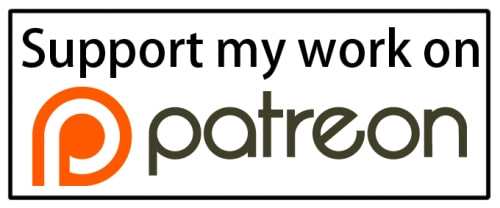|
Serpent to Sun
Ashes to ashes Sun to earth Earth to sky Serpent to sun Sun dips low But only a bob A nod A gentle genuflect And up and on Sailing Searing Soaring Ashes to ashes Sea to sky Sky to grass Sun stands still Animals worship Antelope run Sun is soaring North to north Thunder and lightning Rain on earth Ashes to ashes Wind to fire Sun to sea Grass to sun Clouds abate Winds are low Dusty halo Horses grazing Touch the earth Kiss the grass Seek the water Ashes to ashes Sun to earth Earth to sky Serpent to sun - Kris Hughes 2013 |
|
If you enjoyed this, you might also like If Angus Would Come!
2 Comments
This rhyme about the Magpie is familiar to many. Perhaps a remnant of a very ancient lore of using birds to predict the future. The Magpie may indicate seeing the future or altering it in an entirely "normal" way, as well as to deeper powers. Sometimes what is going to happen is just obvious, and sometimes we can do something about it. Because they are often seen in groups, the number of Magpies you see may be significant. However, if you only see one, there is a remedy. You must say something like "Good morning, Mr Magpie. I hope you are well, and that your wife is also in good health." This is supposed to dispel the bad luck. (However, I can tell you that I've seen every number of magpie, many times, and still haven't had any children!) So, you see that the magpie is associated with prediction, and also with being able to change what is going to happen. Isn't it interesting, too, that the thing which is required or us here is a kind word! "Seeing the future," is the reason many people turn to divination. Obviously, I believe it is a useful tool, but I strongly believe in our ability to alter the course of the future, also! Sometimes, having a better attitude to those we meet is a good place to start. 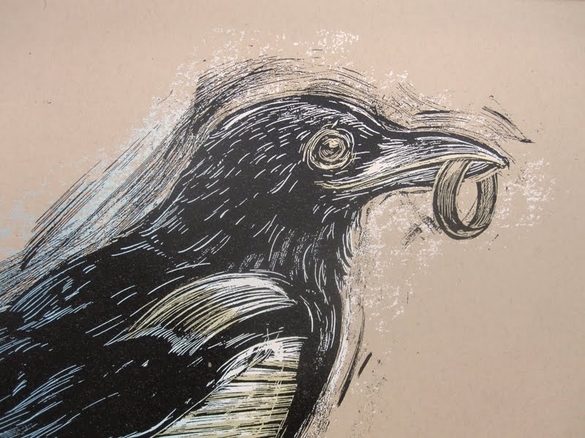 The question of mistrust should not be taken as a value judgement. The Magpie is disliked because it eats the eggs and young of other birds. However, it would be a mistake to say that it is doing "wrong". This is the "right" behaviour for a magpie, who is doing exactly what it should be doing - behaving like a magpie! The other birds will not be happy about it, though! Sometimes, just being ourselves upsets people, and they have their right to avoid us, just as we have a right to express our nature. At the same time, being humans with a wide variety of options, we might like to consider whether we can be less hurtful in the process. Those who love songbirds are now concerned about the encroachment of Magpies into their garden. While their concern is legitimate, it has never seemed to me that it is the Magpies themselves who are out of balance. They are still just following their nature. It is the situation in which they find themselves which has altered. Ultimately, the card isn't about what the Magpie does, but how it is perceived by others. If you enjoyed this note you might also like Rooks (It's a tribal thing) 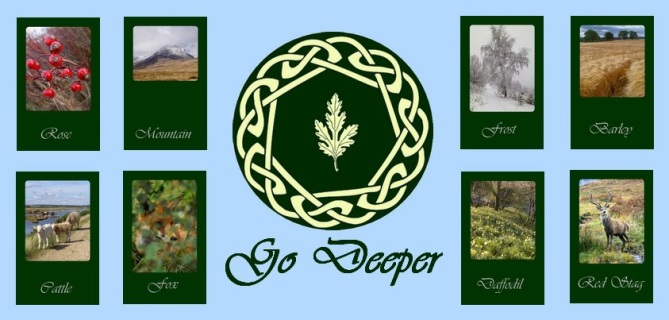 Go Deeper Reading In depth reading by email. More information about my readings at this link. $ 40.00
When I lived in Edinburgh, I used to love waking up to the raucous (and extremely loud) cries of the chimney pot gulls that perched and nested on the 3-4 storey tenement buildings that make up so many of Edinburgh's streets. The echo created by the narrow paved streets, stone buildings and slate roofs amplified their laughing cries to a window rattling volume totally unlike anything you hear at the sea shore. Another inhabitant of my world in Edinburgh was my friend Jonathon (yeah, that wasn't really his name). He was also a free spirit. He was a musician of the highest calibre. I'm sure that Jonathon possessed a piece of the Dagda's harp within his soul -- for he was one of those rare musicians who could cause his listeners to laugh, cry, dance, fight or be lulled into sleep with his music. Being a musician myself, I enjoyed his friendship very much, and we also enjoyed a similar, taboo-free, sense of humour that is rare to find. Of course, there was a down side. Jonathon was one of the most irresponsible people I have ever known. He was the house guest from hell. He drank too much, smoked too much, messed up people's houses, seduced their wives if he could, and was difficult to get rid of when you got tired of him. He got barred from pubs as routinely as other people do their washing. He had a home to go to, but that wasn't nearly as much fun! Most of us put up with this, to whatever degree our patience allowed, because of his talent, because he was a lot of fun, and occasionally because it was just easier than the alternative. The good people of Edinburgh were often up in arms about those annoying gulls, and various plots were hatched to get rid of them, but I always found myself siding with those noisy, messy creatures. They weren't very good neighbours, admittedly, but their wild laughter and free spirited approach to life filled my heart. I can be shy, reserved and overly cautious much of the time, but I see that the world needs wild freedom, too. Wild freedom rarely has much regard for the comfort of others. It stirs things up, it makes a lot of noise, and messes up our tidy lives. I believe that having contact with free spirits is good for us on several levels. It teaches us to loosen up, to have a good time and stay up late and have some fun once in awhile, even though it's Tuesday. It teaches us that we can't control the behaviour of others all the time, and that we don't always need to. It teaches us that we can find creative strategies to protect our territory sometimes, and that we'd better learn to live with it when we can't.
Rooks - Intelligence, communication and problem solving come naturally. The society of the tribe is important, and the individual flourishes within it. Loss of these qualities brings ill. Change and death may be frightening, but can also be foreseen, and guidance found to pass through. Photo by foxypar4 Rooks are monogamous birds who live in a close knit but rather casually organised society, in colonies known as rookeries. The males are great fathers and mates. The picture above shows an adult male and a youngster spending time together. Rooks look very similar to crows, and there is an old adage "A rook on his own be a crow, and a group of crows be rooks" which drives home their tendency to be in groups with their own kind. The Rook card says to me that you can find your domestic bliss, and that it will be within a wider supportive "tribe". The intelligence of the crow family is well known, as is its relationship to death (or change) both as a harbinger and a guide. Ravens and other covids are often associated with death in literature and popular culture. Because of this, some people find them "creepy" or "evil". Nothing could be further from the truth, and it's also worth remembering that (just like the "Death" card in Tarot) death is most often a symbol of change and letting go of the past. Rooks, seems very positive to me. Intelligence and the support of a wider group are good keys to success. Problem solving abilities, and the resources to deal with change or loss are also to the fore. Learn to recognise and appreciate this big supportive family when it presents itself in your life. Going it alone doesn't seem to be the way to go here. Intelligence - either your own or that of others - will play an important part in this, and should be valued. There is a wider "family" that you belong to. Stay a part of this and you will be nurtured and encouraged to find yourself The Rook way of living as a society is very beneficial to the individual. It allows for self expression and change to happen with friendly guidance. "Loss of these qualities brings ill." Is this significant for you? If you enjoyed this post, you might also like One for sorrow, two for joy - a post about magpies.  Go Deeper Reading In depth reading by email. More information about my readings at this link. $ 40.00 Black Pony - A relationship may be frustrating for both parties. What appears wild and untameable should sometimes be left so. Tact and great patience will be required to avoid loss of dignity. When an oracle card has a meaning or definition that long, you know you are looking at some deep layers of complexity. (I will also add a disclaimer here, for those who know me, that this card doesn't refer to either of the flesh-and-blood black ponies I happen to own, so if you know them, or stories about them, don't muddy the waters by adding them to the pot.)
You'd wonder why anyone would ever want to own a horse at all, but they are so beautiful, so seductive and iconic. They are enormous fun to ride when things are going well. Like other domestic animals, there are also plenty who are "in trouble" and need rescuing in one way or another, and that is a very strong pull for some people - especially when horses are so, well, you know - beautiful and iconic, etc. etc. On the flip side, in most cases where the human isn't coping with having a horse, their horse is not having a great time, either. It may suffer from neglect or even abuse (there are a thousand kinds of unintentional neglect or abuse which befall horses) or may be afraid of the owner, or very confused about what it is being asked to do. It may simply be dying of boredom... You may be getting an inkling of how all of this can be a metaphor for projects, and even relationships, that we find ourselves drawn to. I've mostly talked about the negative aspects of having a horse, here, but of course there are many potential positives, too, for both horses and humans. A successful horse/human partnership is a wonderful thing, where both parties are getting what they need, feel a strong sense of purpose, have fun, and find their lives enhanced. They are both happier and healthier as a result. None of us has perfect judgement, and there is no universal formula for making right decisions. Many projects we look at are fairly safe bets. Either it's pretty obvious that we can get the job done, or it's something where nobody will get hurt if we don't. Then there is wild horse taming. If you're going to try that, I suggest that you take a long look at your skills and other resources. A long honest look. A long, well-researched, honest look. Then I suggest you take a long look at who might get hurt, and please don't forget the horse, or yourself, or your family - and I'm not just talking about physical injury here. Emotional and even spiritual damage is very real. One horseman, Pat Parelli, has a very useful list, called "The Seven Keys to Success". The list is his, the comments in brackets are my own. 1 Attitude I've found this to be a pretty good guide for getting things done in life, and a pretty good way to assess what I can do, and what I might be wise to leave alone. Even if you don't use this exact criteria, this is the type of thinking that the Black Pony card is urging you to apply to this crazy thing you're considering. There is no doubt that sometimes being strong on Attitude or Time can compensate for a lack of Support or Knowledge, etc. However, if you are in doubt about whether to go into something big, that doubt alone is a little warning flag, isn't it? Few of us naturally assess our abilities accurately. We either believe that we can do anything we are passionate about (or can afford, or that we can fake it a little, or whatever) or we are the type to have low expectations of ourselves, when we could actually do more than we realise. Either way, an honest inventory of what is needed and what we actually have, is going to get us closer to the truth. What about following your heart? Fair question! I am actually a great believer in following your heart. Remember that this post is really about the Black Pony oracle card, and its meaning. So if you see this card in a reading, then I believe it is definitely directing you to consider the question from these practical angles. Even then, passion is definitely an aspect of "attitude" and is worth including in the calculations!
This piece was published on The Magickal Harvest blog last week as part of a blog trade. Here it is, for those of you who missed it. I have never doubted for a moment that animals have souls. However, what we should do about that, is such a complex question that it's easy to see why both religious and secular wings of the establishment have long preferred to either deny or cast doubt on the question. It's not the place of this piece to enter too deeply into the definition of what the soul might be. Mirriam Webster's first definition is a pretty good one to be going forward with: "the immaterial essence, animating principle, or actuating cause of an individual life" Further down the list were two more that I particularly liked: "the spiritual principle embodied in human beings, all rational and spiritual beings, or the universe" and "the quality that arouses emotion and sentiment" Every once in awhile, a popular scientific periodical seems to run an article with a headline like "Scientists Find That Animals Actually Feel Love and Affection" or "Animals Have Emotions After All, Say Researchers". In the words of a no nonsense engineer I know "Geez! They'll be discovering steam power next!" and yet I'm always surprised to find animal loving friends sharing things like this on the internet, as if just one more half baked piece of pseudo-science will lend weight to what we all know in the first place! However, don't forget that it wasn't so long ago that there was a near consensus in the so-called scientific community that animals did not, in fact, even feel pain, and there are still those who try to hang on to this notion, either completely, or who say that "Okay, they feel physical pain, but they lack the same emotional associations (fear of death or incapacity, fear that the pain won't stop, etc.) and this is frequently tied in with the idea that animals don't really suffer in unpleasant or unnatural situations either. I'm sure I'm preaching to the choir on these points, but at the same time it's when we come to the realisation that animals probably experience unpleasantness in a similar way to humans, and that they probably do have souls (whatever a soul is) that things start to get really difficult. The trouble is, that most people who believe that there is such a thing as a soul, would also say that the soul is in some way sacred - and if the soul is sacred, the question of the body which contains it also being sacred has to arise, for if we cause suffering to the body, we probably cause suffering to the soul, and if we kill the body, perhaps we make the soul homeless, or kill it, too. It depends on what you believe, and it's easy to see why it has been easier for people in cultures which keep animals in captivity for their own use, to just say "Animals are not like us, so this is okay." Now, this is where things get really tricky. Let's say that we're agreed that animals do have souls and emotions a lot like ours. We could easily be headed for an enormous guilt trip. Some people deal with this by becoming vegans or working for animal liberation, and I'm not going to descry that at all. Most of us are in a kind of partial guilt/partial denial place, though, and it's really this I want to talk about. Is there a hierarchy of souls? Is the soul of an animal whose species is endangered more valuable than than of an alley cat? Is a human's soul of more importance than that of a bug? Should the cute, the pregnant or the seemingly noble be given extra points? Somehow, I doubt it, and this is why I personally give much greater importance to ending or averting suffering than I do to preserving life. That goes for humans and animals. Don't get me wrong, I don't view the ending of a life as nothing, but I do believe that life is a circle and death will be followed by rebirth in one form or another. I don't believe that death is the end, but I am absolutely sure that it is inevitable! Suffering, on the other hand, is a dirty business. Not only is the sufferer in some degree of misery, but that suffering besmirches all who contribute to it or who come into contact with it. So now, let us step toward the dining table. Rather than starting with a big plate of guilt, or even denial, let's think about how we can nourish our body in mindfulness of other souls. When I eat meat, I try always to be mindful of the soul of the animal whose body I eat. That is a start. I also am mindful of the life that animal led, from birth to death, and I believe that it is my duty as a fellow traveller in this world, to know, if possible, whether that animal was kept in a life of misery. For that reason, I don't eat meat unless I feel pretty sure that the animal had a good quality of life. The result is I don't eat much meat, and at the same time I enjoy the meat I eat. Sadly, I love dairy, and knowing what I do about the commercial dairy industry in the US, I know I will have to change that next. (Time to learn to make my own cheese!) That said, though, I believe that we can easily get too hung up on images of cute calves, miserable pigs in restrictive crates, and other horrors, and forget the suffering that is caused to our fellow human and animal travellers by the way crops are grown and the way that food is manufactured and marketed to us. This is important, too. Was the Kenyan farm worker who picked those baby vegetables paid a living wage? How did the illegal field worker who hoed that melon field live while he sent most of his earnings back home to Mexico? What about the Walmart employee who is struggling on food stamps while they stack the shelves with your incredible bargains? Yeah, when you look at it like that, it's a tough call. Of course, you may say that those people have a choice, whereas the animals don't. Perhaps, but they don't always feel that they have a choice, so we might like to ask ourselves what we can do to change that a little. So now we look at that dining table again, and it has become very fraught with worry for those of us who want to be ethical. Adding to your worry is not my intention, and neither is it my intention to trivialise the suffering of a single soul who contributed to your feast. If you are thinking about things like this, you are on a frontier of evolved thinking. It's a scary place at times, but when we are on a frontier, it never hurts to stop and look back, and look around, and try to gain a little perspective. Everything we do. Everything. Has implications. One of the first things we need to do is cut ourselves a little slack, for causing suffering in yourself probably isn't any better in the universal scheme of things than torturing chickens. As fellow travellers with animals in this world, we have ended up with a great deal of power. Remember that we all have power to cause, and to potentially relieve, suffering in our fellow humans, too. It is a big deal, but it needn't be a heavy weight. We can only do our best. We may see changing some of our habits as arduous or unfair, or we can look at it as a great adventure and a way to feel much lighter in our own souls. Being kinder to those we meet is a form of mindfulness, being kinder in our eating habits, or our buying habits, or in how we treat the planet we all have to share - maybe these all carry equal importance. If we are not attentive in our eating habits, I do believe that it is a symptom of a lack of attention in a wider sense. However, if we eat "ethically" and then are unkind to others for making different choices, I don't think we will be helping anyone very much.
My partner, Mark (who is an agnostic), and I have begun blessing our food and water, and the food and water we give to our animals. It is interesting to feel a shift in things here as we do this. That act is about sending good energy forward into those around us and what we all consume, but perhaps it is also possible to send energy outward, and backward, toward those who provided us with our food. This is about much more that the "quality" of what we put in our bodies, about more that ethical eating. It is an active and energetic recognition that all things are connected. I personally do not wish to be "self sufficient" in what I eat. How can I be? I recognise the threads which connect me to all life, and have no wish to cut these connections artificially. I would rather use the act of eating and drinking to increase my awareness of the connections.
Shapeshifters and Magical Animals is a three week series of classes starting on April 10th, 2021. Click here for more information.
It used to be a common folk belief that in winter, as things slowed down, our blood got thicker. Then in the spring, it was a good idea to take a spring tonic to get the blood flowing freely again. While the belief about the blood is quite a comfortable one, it doesn't seem to have any basis in reality. However, the taking of a spring tonic is still not a bad idea. Early bitter herbs are a good choice, nettles and dandelions taste great, and of course, there's hawthorn. After all, in common with our ancestors, we tend to move less and eat more comfort foods in the winter, so when these things become available it's a good idea to get our digestion going properly, pep up our liver and improve our circulation.
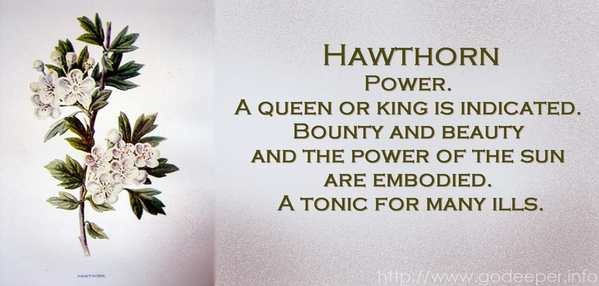
Hawthorn as defined in my oracle
When hawthorn leaves are green and tender in the spring, people will sometimes munch on a few, or gather some to add to a salad. Animals are also attracted to them at this time. Equine herbalist Hilary Page Self recommends hawthorn for horses with both laminitis and navicular syndrome, because of its good effect on the circulation of blood to the feet. When I lived in Scotland it was common to see native ponies stuffing themselves on hawthorn leaves in spring. That was a good choice to follow, as it is in the spring that the lush grass is most likely to cause the metabolic upset that leads to laminitis - which is an extremely painful and potentially lethal condition.
As spring moves into May the hawthorn (also called May, or May tree) blooms. These blossoms were a traditional part of May Day celebrations, being used to deck the May queen and May king, Maypoles, and the entrances to houses. However, there is a well-known taboo against bringing hawthorn into the house, as it is believed that it brings death. In fact in some areas it is known by the name "dead man's froth". I always found this strange. Why would a flower associated with spring, fertility and health also be associated with death? Then I came across an essay by Paul Kendall on the wonderful Trees for Life website. The following passage offers a good explanation:
Mediaeval country folk also asserted that the smell of hawthorn blossom was just like the smell of the Great Plague in London. Botanists later discovered that the chemical trimethylamine present in hawthorn blossom is also one of the first chemicals formed in decaying animal tissue. In the past, when corpses would have been kept in the house for several days prior to burial, people would have been very familiar with the smell of death, so it is hardly surprising that hawthorn blossom was so unwelcome in the house. It has also been suggested that some of the hawthorn (Crataegus monogyna) folklore may have originated for the related woodland hawthorn (Crataegus laevigata) which may well have been commoner during the early Middle Ages, when a lot of plant folklore was evolving. Woodland hawthorn blossom gives off much more of an unpleasant scent of death soon after it is cut, and it also blooms slightly earlier than hawthorn, so that its blossoms would have been more reliably available for May Day celebrations. Hawthorn has a strong association with fairies, particularly in the sense that the areas around some hawthorns were places prone to offer openings into the fairy otherworld. They are also the most common species among clootie trees, which although they are now mostly Christianised sometimes have fairy lore connected to them.
Hawthorn in the form of agricultural hedges is, of course, used to enclose pastures and fields. A well laid and maintained hawthorn hedge is as stockproof as any barbed wire fence, but has many advantages beyond looking prettier. It provides a windbreak for the animals it contains, a source of medicine, and the haws (berries) are somewhat useful as a food, if not very tasty. The real benefit is to nature, though, in the form of food and shelter for many small animals, plants, birds and insects. It's no wonder that hawthorn is such a strong symbol of spring, fertility and the summer to come.
If you enjoyed this post, you might also like Thoughts on Hawthorn for May Day.
My thinking about the goddess Eostre and the Vernal Equinox has changed. This little essay concerning the existence of the goddess Eostre, or Ostara, appeared in my Facebook feed this week. (I hope the link works - you probably need to be signed in to Facebook.) It mostly references the Wikipedia entry on Eostre, and I feel the case is believable. I have not paid much attention to this question until now -- I'm afraid I probably saw one or two "there's no evidence" type comments in the past and dismissed Eostre as fantasy, and was happy enough just celebrating the Vernal Equinox for what it is from the basis of nature and astronomy. I have noticed in myself, and some Pagan friends, a need to fill our calendars with deities, especially at the eight major points in the wheel of the year. Like debutantes of yesteryear, filling their dance cards, we want to make sure that there is no ambiguity as to Who will partner us at these important festivals. So, I noticed that it was with some relief that I penciled Eostre in for March 20th - even though we haven't been properly introduced. I will be open to her energy, and curious to know her. I had a nice little daydream of Bride taking her by the hand and leading her into my ritual space, as if to say "There is room for you here." At the time I wasn't thinking about this in terms of Bride having reigned over Imbolc, and handing things over to Eostre now, and I'm not saying that this is what is happening, although it's an interesting angle to consider. I was simply seeing Bride as one of my "household Gods", welcoming a Being rather similar to Herself into our space. If I had to describe my "pantheon" or "hearth culture" I suppose I would define it as "British Isles" rather than "Celtic" anyway, so I have no problem with a goddess who was widely worshiped in Northumbria and other parts of England. I'm simply glad to meet her, and interested to see where things go between us in the future. 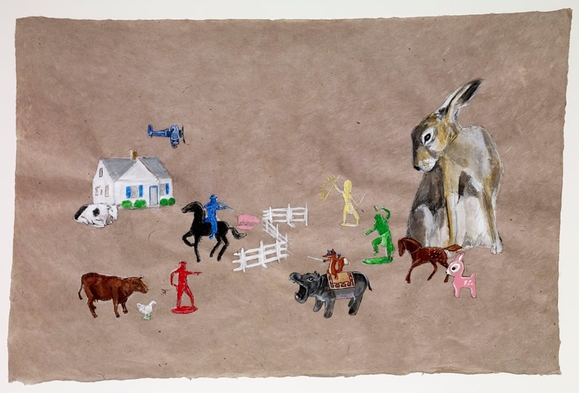 I am often frustrated by the difference in climate and biology between my current home in SE Colorado, and my long-time home in Scotland. There are no wild flowers to pick here in March -- particularly this year with the continuing terrible drought. No hedgerows full of health-giving herbs, no spring rain to speak of -- even wildlife seems to have retreated to the strip along the river a few miles away. Jackrabbits, though, are still in evidence. They were one of the first animals to greet me when I moved onto this farm a few years back, and I often see them -- thanks mostly to my companion, Molly the Collie, who flushes them out and chases them, but has never come close to catching one. In case you didn't realise, a jackrabbit is member of the hare family. In fact, they don't look much different than European brown hares. I have to remind myself to call them jackrabbits -- a name that I'm told was popularised by Mark Twain. The story goes that folk were beginning to call them "jackass rabbits" due to their spectacularly long mule-like ears, and Twain picked this up and spread it around. I've long been aware of the hare's association with spring and fertility, with their madcap romps, and that somehow they were associated with eggs. Not surprisingly, they are also closely associated with Eostre. I'm very glad to have hares here, and to make the connection through this goddess to the land around me, and especially for that to be a connection which vibrates to my old sense of the land in Scotland, too. I have been asking the spirits of nature here to speak to me, as I feel quite disconnected from it. Perhaps this is a step in that direction. I'll leave you with this video. It's a thirty minute BBC wildlife documentary from the 1990s, all about both the natural history of hares and their mythological and spiritual associations. Hare coursing (chasing hares with greyhounds or lurchers) was long a popular country pursuit in Britain, and it is discussed in this programme, however, there are no bloody scenes or anything, so don't worry. Hare coursing has been illegal in Britain since 2005, quite some time after this film was made. I'm sure you will enjoy this video - it even has great music! Further reading: The Symbolism of Rabbits and Hares by Terri Windling I really enjoyed this well written piece, which includes many beautiful images! Eostre's Egg by Maria Ede-Weaving. A look at the symbolism of this holiday from a more personal and psychological perspective. Here's a look at Herons, and how their story ties in with the Heron card in my oracle deck. Herons are skilled and patient fishermen. It's not unusual to see them standing motionless in shallow water for long periods, as they wait for the fleeting moment of opportunity when they will strike a fish with great accuracy. However, they are also more widely skilled and able to hunt on land when the opportunity presents itself, or dive for fish in deeper water. As a result, neither they nor their young will go hungry for long.
There is something about crows and herons. In nature, they rarely get along, with crows tending to mob herons - possibly because herons will eat other birds' nestlings. Perhaps that's why the two birds are so often associated in mythology, as their battles have drawn the attention of humans who then needed to explain them with stories. In most stories, the Heron is the good guy, but not always. The Chinese even suggest that the two birds can represent the yin yang concept. Here is one folktale which, with only minor variations, is known from India to western England. It goes like this - A crow and a heron were both perched in a large tree one day, when along came a traveller (or hunter, depending on the version of the story). The day was hot, so the man decided to have a nap in the shade of the tree. He fell into a very deep sleep, and after some time, as the sun moved across the sky, the shadow of the tree no longer protected him. The kindly Heron spread his wings out to shade the man's face for awhile longer as he slept on. So deep was his sleep that his mouth began to gape open as he snored. Soon the crow could stand this no longer, so he took aim and dropped something into the poor man's mouth! (It might have been an acorn, it might have been something else that birds sometimes drop - depends on who is telling the story.) Naturally the man awoke and he was angry. He looked up, saw the Heron, took out his gun (or bow) and shot him dead. This traditional tale is a pretty extreme example of guilt by association, and when considering this aspect of the card in a reading, I would look for subtle variations on this theme as well as the more dramatic form of outright false accusation. For example, in one reading I did, it seemed that the client's spouse could not get past expecting her to hurt him in the same way that his ex had! He didn't actually suspect her of any bad behaviour, but he couldn't help expecting that it would happen eventually. (And those strong family ties made it difficult for her to give up on the relationship.) This card can also refer to things like prejudice and discrimination, as well as the dangers of "running with a bad crowd". In other cases, we might be looking at a situation where someone feels torn between loving loyalty to their family and some negative perception that society has about their family or social group. Perhaps these considerations relate back to the heron's tendency to work (hunt) alone, yet also returning to their own kind for the safety of numbers. In a way, this is how the Heron balances the tendency to be misjudged, and avoids the risk of being in the wrong place at the wrong time. He just gets on with his hunting, and goes home to those who understand him - if he's wise. If you enjoyed this post, you might also like Rooks (It's a tribal thing) I hope this little essay, straight from the Garron's mouth, will make clear the meaning of this card in the Go Deeper oracle deck. There is mist on the hills this morning, but no rain. Down the glen where the people live I can hear them starting the land rovers and making a lot of noise. If I were a deer, maybe I'd be worried. If I were a deer I'd be headed somewhere where they'd never find me. Or maybe not. Maybe, if I were a deer I'd be ready to meet my end today, ready to move on... 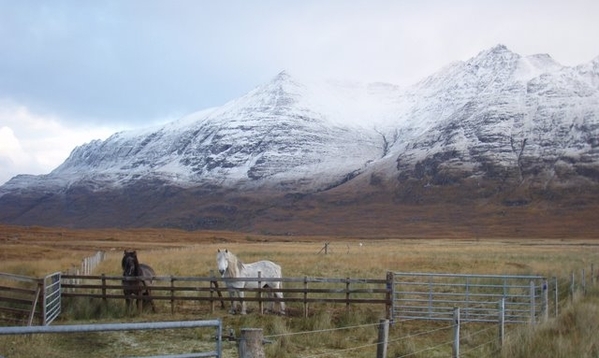 Stalking ponies, or Garrons, near Ullapool. (Roger McLachlan) 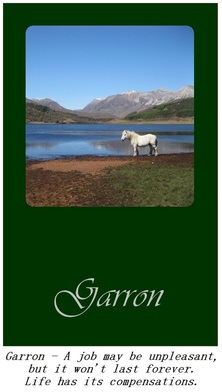 Last night I ate the hay inside this fence and some grass, too, and all of the dead thistles in that one corner. Water from a bucket. I am impatient to get back to the pastures. Life is more interesting there. In a little while the man called Archie will be here. He almost always comes first. We know each other. He'll brush me very fast and throw the deer saddle on me. I'll spend most of the day waiting, but I'll probably be carrying a stinking, heavy stag by afternoon. I am one of the strongest ponies, they say. How frightened I was of that job when I was younger. The smell of blood! My instincts told me that this was dangerous. Blood attracts predators. I see now that the only predators here are the men, and they treat me almost as one of them. I know that they will keep me safe, but I do wish they would wash that smell off me at the end of the day, or let me roll in the mud where the burn is wide and shallow. I roll and roll in this enclosure, but even if I get the stink off of me, then it is all around me. I am glad that there are other ponies here with me. I am friends with the one they call Meg. Ah, here comes Archie up the track. He'll be here soon. Later I'll be dozing in my saddle, tied to the rail there. I think it will be sunny. Yesterday, I dreamt of sweet spring grass and the smell of spring mares. I feel sure that they will turn us out on the hill soon! We have a winter of snow and hay ahead before the spring comes again. Some of the men who walk with us are strangers. They smell odd and have loud voices. They look at the beauty of the glen with such wonder. Most of them stay near the land rovers, sometimes they come to look at me, slap my neck, fuss over the tying of their stag. I see the awe in their eyes. This place is strange to them, yet they are hungry for it. This is my home. I never leave. I see it's beauty all the time. If you enjoyed this post, you might also like Sacred Stewardship. |
Archives
March 2023
Categories
All
Blogroll |
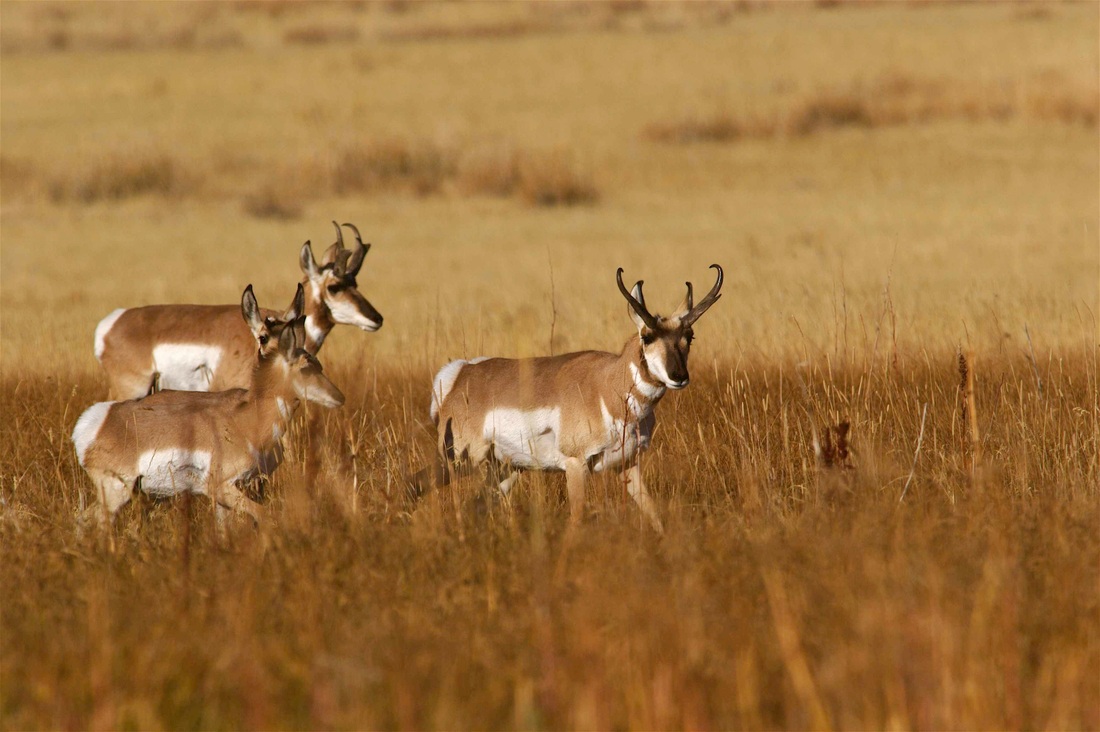
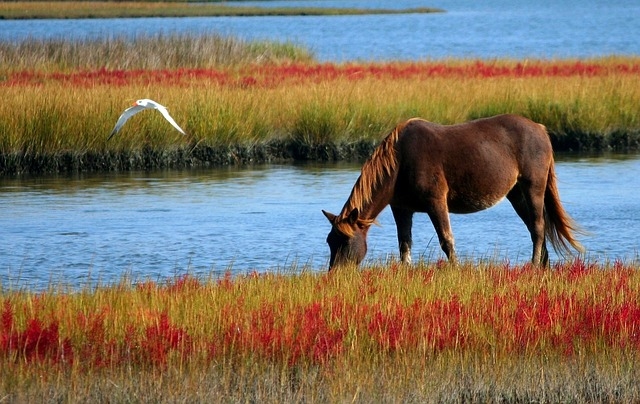
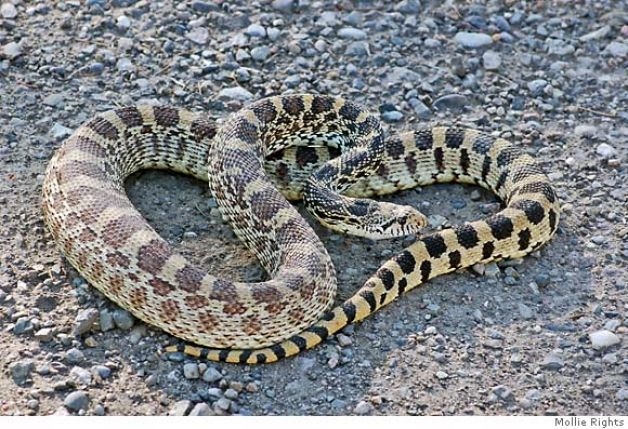

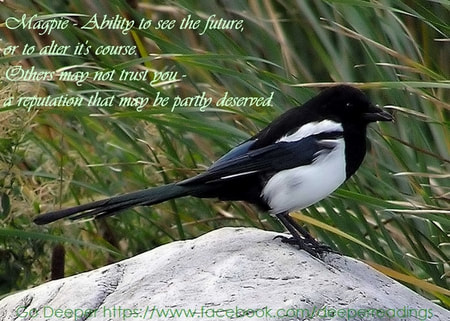


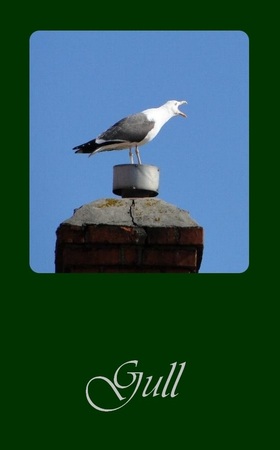


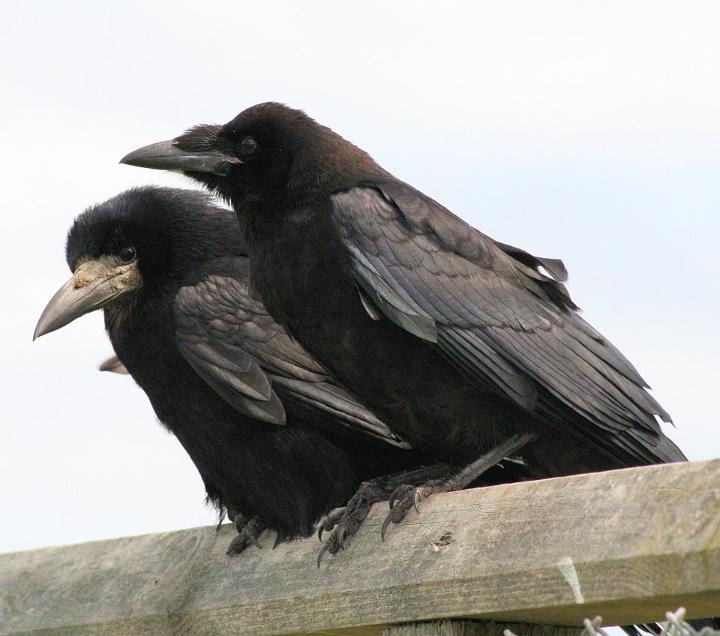

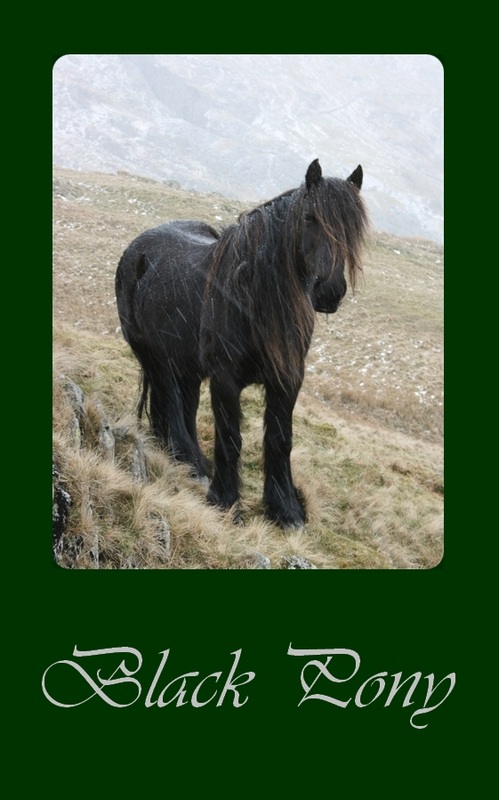

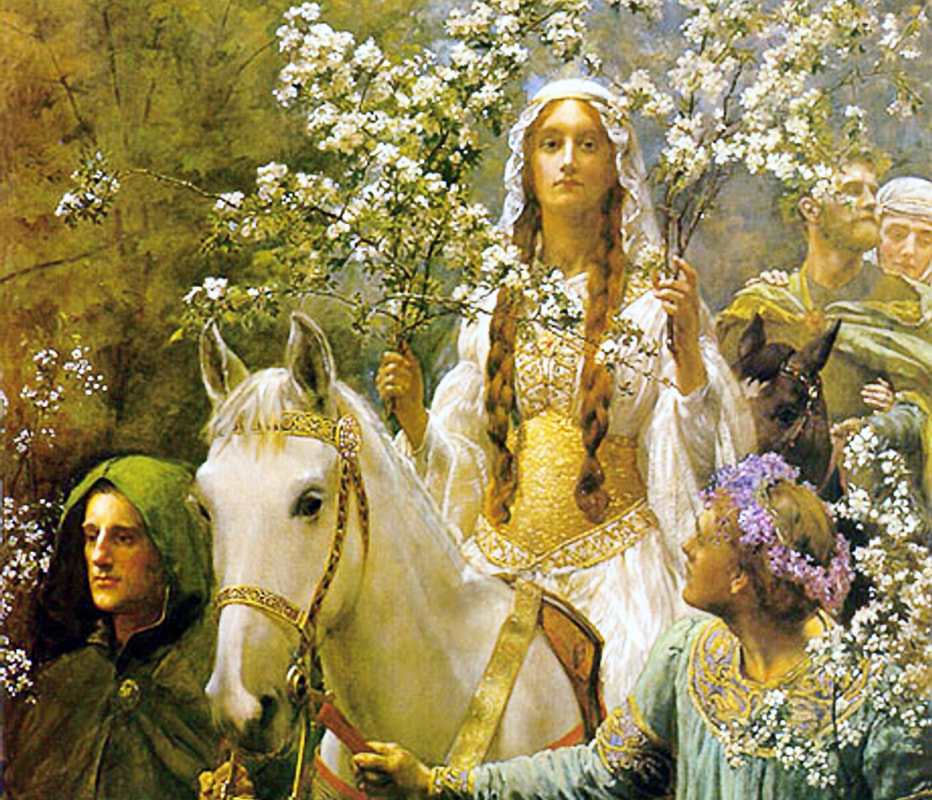

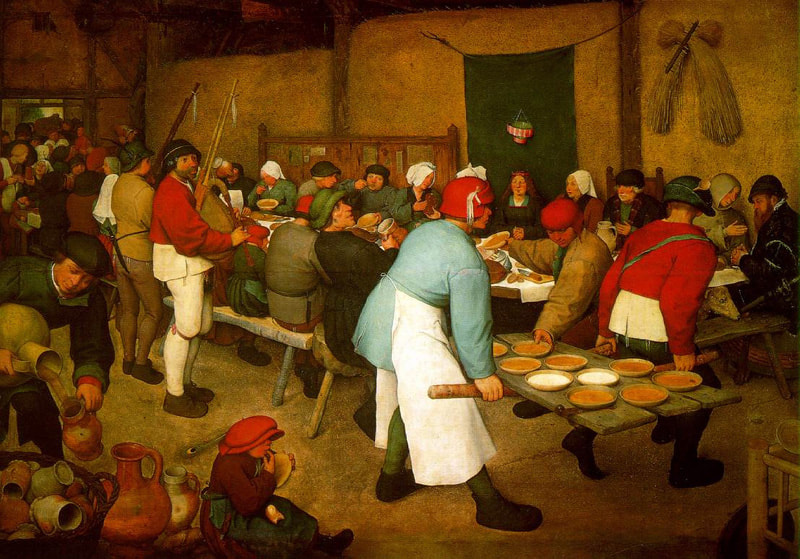
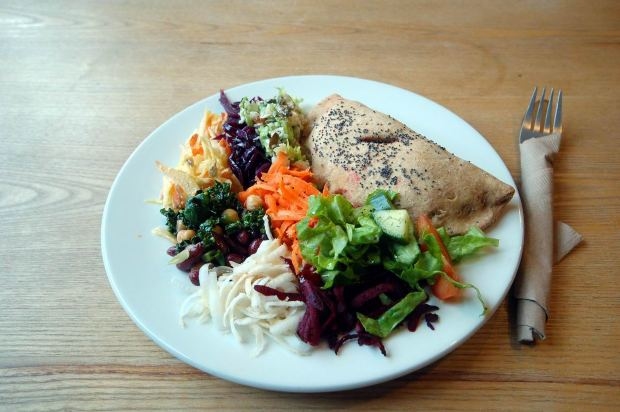
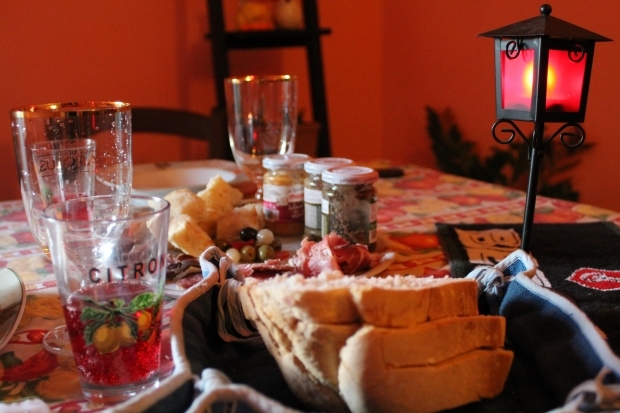
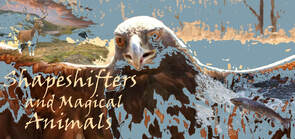

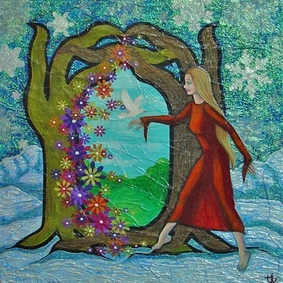
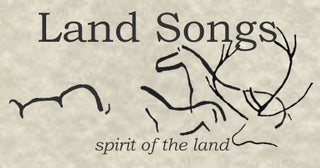
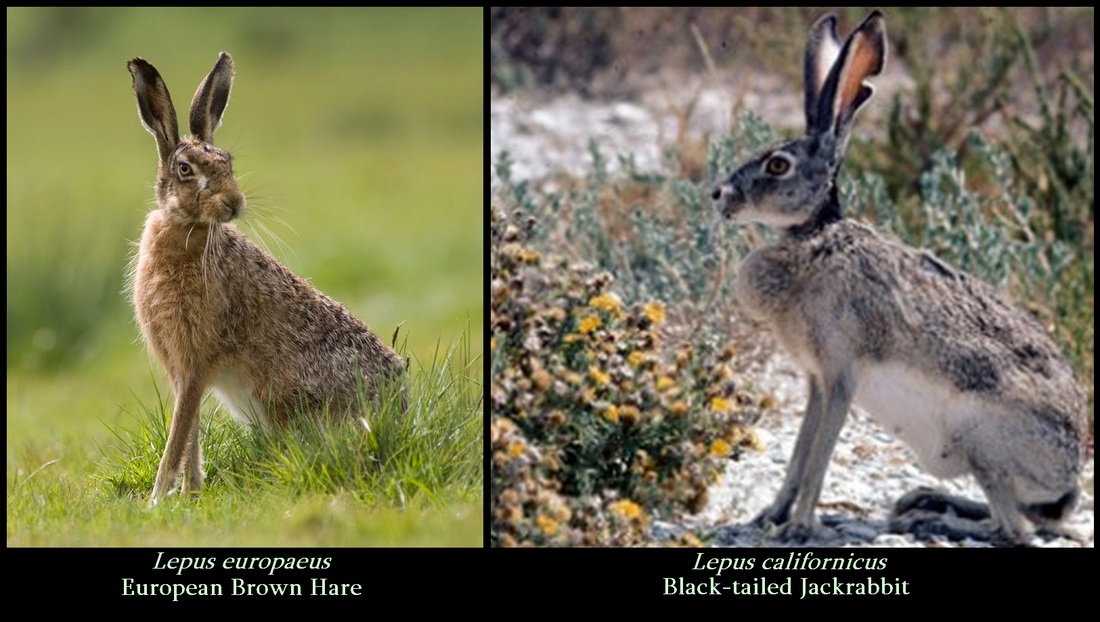

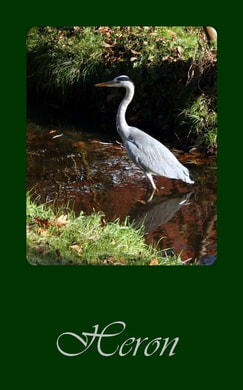
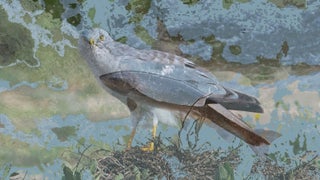

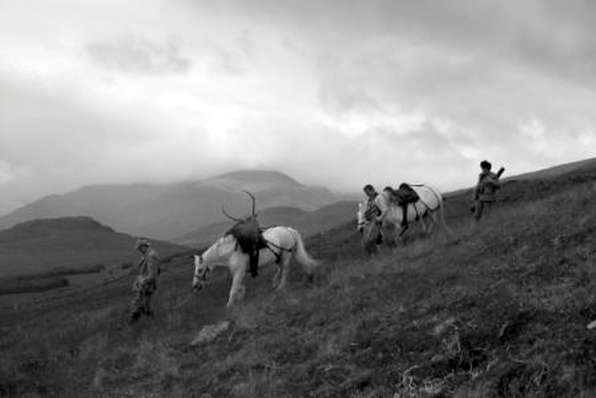
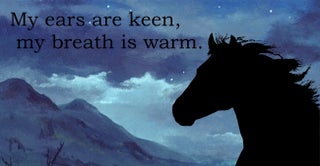
 RSS Feed
RSS Feed



